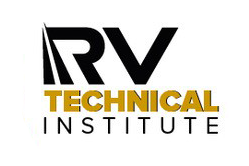HELPFUL HINTS for RV'ers From Valley RV Supercenter
The following are some helpful hints for our first time and experienced RV'ers that will put more fun, not frustration into your RV'ing experience.
WINTERIZING
Fresh water systems must be winterized before outside temperatures start to fall so that the plumbing system does not freeze and result in damage. This applies to the drinking water and the drainage systems. This should be done professionally, either here at Valley RV Supercenter or by any reputable RV dealer. Recreational vehicle antifreeze must be used. DO NOT use automotive antifreeze.
12 VOLT BATTERIES
Auxiliary and engine batteries are not always maintenance free batteries, as in the newer type automobiles. Water levels and state of charge are critical in freezing conditions. A discharged battery will freeze, resulting in splitting of the case and rendering the battery irreparable. Poorly maintained, defective and poorly charged auxiliary batteries can and will cause many problems including:
- Improper functioning of furnaces
- LP leak detectors will start beeping and not function properly
- Refrigerators, A/C, furnaces & water heaters may not function properly due to low voltage at the circuit board
- There are several precautions that can be taken to avoid battery drainage.
- TV antenna booster needs to be turned "OFF"
- Electric steps need to be turned off when storing your RV
- Some refrigerators will draw battery power even when turned off. An open refrigerator door will cause the light in the refrigerator to run down the batteries.
* Use your battery disconnects if your recreational vehicle is equipped with one. It will take an external battery charger to charge both dead auxiliary and engine batteries. If your batteries are badly discharged or are completely dead, your disconnects will not engage until charged up.
FRESH WATER
Fresh water tanks must be drained to prevent drinking water from becoming stale. Stored water can become stale and cause odor problems. This can occur even with short periods of storage, i.e., weekend to weekend.
TOILETS & DRAINAGE SYSTEMS
Toilets should hold water in order to prevent odors from entering living areas. Special recreational vehicle toilet paper and chemicals must be used to prevent clogged slide valves, false readings from tank sensors and odor problems. Improperly maintained black and grey tanks can build up a coating that must be cleaned for control of order and monitor panel readings. Black water (sewage) dump valve must be closed while using the waste system, even when hooked up to a campground dump site. Solids must be broken up with chemicals and water in the black tank to allow sewage to flow out through the sewer hose when the dump valve is opened.
RECREATIONAL VEHICLE REFRIGERATORS
Refrigerator doors must be propped open when storing in order to prevent mildew and odor buildup. Some refrigerators have a built in device for this purpose. All refrigerators, both gas and electric, need to be level to operate at the maximum efficiency.
If operated in an unleveled capacity for prolonged periods of time, the refrigerator may stop cooling and may ruin your cooling unit. This is a very expensive repair and is not just a matter of adding coolant to your unit. Because there is no coolant in the unit, an ammonia mixture is used to circulate through the tubing. If you notice an ammonia odor in or around your refrigerator, it may require repairs. THIS IS AN EXPENSIVE REPAIR.
STORAGE COMPARTMENTS
Storage compartments may not be waterproof & dust proof. Please keep this in mind while packing your vehicle and storing your belongings. Do not ruin your golf club bags, bedding, clothing, etc. by improper storage.
LP TANKS
Liquid petroleum tanks are full at 80% capacity and are never actually 100% full. This 80% will vary with outside temperatures. LP fuel tanks are not to be filled to more than 80% capacity in order to allow for expansion. Do not overfill your tanks.
RECREATIONAL VEHICLES ARE NOT AUTOMOBILES
Recreational vehicles are built on a "Rail" or truck chassis and are heavier, taller, and longer and take more time to stop. They swing out when turning and are generally harder to maneuver than the family automobile. Practice driving and maneuvering your RV in a large empty parking lot to become familiar with its handling characteristics.
CHASSIS
Recreational vehicles are built on several different chassis. Among them are Ford, Workhorse, Spartan, Freightliner, Roadmaster, Dynomax, etc. The most qualified individuals to work on these chassis are factory trained technicians. Warranty work will need to be performed at authorized service centers.
TIRES
The manufacturers recommended tire pressure is printed on the sidewall of your unit. It's important to check your tires for proper pressure. This will help prolong the life of your tires, increase fuel economy and improve handling characteristics.
OWNERS MANUALS
Be sure to read the owner's manuals and become familiar with your individual RV and its accessories. This will help answer most questions that will arise while enjoying your RV. If you purchased a used unit and no manuals were with the coach, you can purchase general information books to help you become familiar with your RV. Some manufacturers will list owner's manuals in an archive file on their website as well.
WATER PRESSURE
Water pressure regulators should be used to prevent damage from water pressure, (any pressure above 50 PSI). Higher pressure than designed can damage your lines and cause needless and expensive leaks.
LP LEAK DETECTORS
Some leak detectors, if not properly reset, will not allow LP gas to flow to any appliances. Helpful Hint- if your gas stove will not light, then none of your other appliances will light. Always try your stove burners first.
CHECK YOUR OIL
Check the oil level every time you get gas. It is not uncommon to use one quart of oil every 500 to 1000 miles. Your recreational vehicle is built on a truck chassis and is much heavier than your automobile. This applies more pressure to your engine and may cause some usage of oil.
110 VOLT APPLIANCES
Air conditioners, microwaves, televisions, VCR's etc., need to be turned off before starting generators or plugging into campground power. Also turn off all appliances before unplugging or turning off the generator. Do you know where the 110 volt breakers and 12 volt fuses are in your unit?
30 AMP SERVICES
A 30 AMP service is 110 volt, not 220 volt. Do not plug any unit into higher voltage than 110 volt. A 30 AMP service will allow only one roof air conditioner to run, not both. Running two roof air conditioners will overload a 30 AMP service.
50 AMP SERVICE
A 50 AMP service is still 110 volt, not 220 volt. However, it will allow you to run both roof air conditioners at the same time. You cannot reduce your 50 AMP to 30 AMP and run both air conditioners without tripping circuit breakers.
EXTENSION CORDS
Long light weight extension cords are the type to be used only for power tools, light bulbs, weed eaters, etc. They are not designed to supply 110 volt to recreational vehicles. If there is not enough voltage supplied to your recreational vehicles, the air conditioner cannot work properly and other appliances may not work properly. Low voltage can cause a variety of problems with 110 volt devices in your recreational vehicle.
GENERATORS
Most generators on recreational vehicles will not start if they are more than 1 quart low on oil or the motor home fuel gauge shows ¼ tank or less. Some generators will not supply power to the inside of your unit until a time delay has passed. This delay is to allow the generator to warm up and build up speed to supply proper voltage. Units that do not have this time delay have to be plugged in manually with the 30 AMP service plug. Make sure all 110 volt appliances are turned off, especially roof air conditioner, until warm-up and proper speed has been reached (approximately 60 seconds). All generators will have overload breakers. If a breaker has tripped it is possible for a generator to run and have power to one roof air conditioner and not the other. Do not turn off a roof air conditioner and turn it right back on. Wait for 15 to 20 minutes and then turn it back on. If this procedure is not followed, circuit breakers may trip, (generator breakers, campground breakers, and breakers in your motor home's 110 volt panel).
Properly sized generators will run both roof air conditioners at the same time either while driving or parked for extended periods of time. Please follow maintenance schedules for changing oil filters, tune-ups and other recommended service for your generator.
MISCELLANEOUS HELPFUL HINTS
- Make sure you know the clearance (height) of your unit.
- Make sure TV antenna is down before moving RV.
- Visually check leveling jacks to make sure they are in proper position.
- Make sure steps are in the up position before moving the RV.
- Make sure you unplug your unit before moving it.
- Power converters will hum and get hot. This is normal.
The dash air conditioner will not cool the whole unit. Roof air conditioners must be used in conjunction with the dash air conditioner.
The Valley RV Supercenter staff hopes these hints and suggestions will add to your safety and enjoyment. You can also find more helpful hints and a lot of other RV related information on our home page or on the internet.


